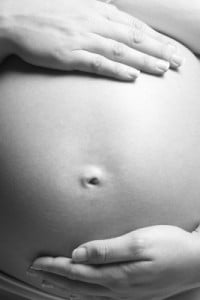
This health problem comes with many complications – heart disease, diabetes and more. Another complication has been added for expectant mothers, according to a new study by the University of Bergen in Norway. Researchers are now saying that mothers with a BMI of 40 or more prior to pregnancy are at the greatest risk for giving birth via cesarean section.
“Our study examines the pre-pregnancy BMI and gestational weight gain on the mothers’ risk of operative delivery,” Dr. Nils-Halvdan Morken, lead author on the study from the University of Bergen in Norway told Medical News Today.
Published in the journal Acta Obstetricia et Gynecologica Scandinavica, the recent study used data from volunteers involved in the Norwegian Mother and Child Cohort Study – a population-based, prospective group of women that had given birth to children in Norway between the years of 1999 and 2008. Conducted by the Norwegian Institute of Public Health, the study included 108,000 children, 90,700 mothers and 71,500 fathers.
For the purpose of their study, researchers only included a group of 50,416 women who had given birth to one baby. Those with gestational diabetes, placenta previa, diabetes, hypertension and preeclampsia were excluded from the study.
After analyzing the data, researchers found that expectant mothers who had a pre-pregnancy body mass index of 40 or higher were at the greatest risk for needing a C-section to deliver. They were also found to have a higher risk for needing vacuum extraction during delivery. Mothers who gained more than 30 pounds during pregnancy were also found to have a substantially higher risk of needing a cesarean section, forceps or vacuum extraction during delivery when compared to mothers who had gained less than 30 pounds during pregnancy.
Interestingly enough, researchers also found that, despite the fact that mothers with a high BMI were larger prior to pregnancy, they had the least amount of weight gain during pregnancy when compared with other mothers. However, their children also tended to be larger than the children born to women who did not have a higher pre-pregnancy BMI.
“Obesity and weight gain above 16kg (30 pounds) during pregnancy are independent risk factors for vacuum extraction delivery and need for C-section,” Morken said. “While other factors may contribute to operative delivery and further investigation of gestational weight gain is warranted, it is important obstetricians be aware of the impact of a high BMI on pregnancy and delivery to properly advise women considering motherhood.”
Related Articles:
- Solar Suitcase Saving Lives of Mothers and Newborns in Developing Countries
- Study: Stress During Pregnancy Passes Through Placenta and Damages Baby’s Brain
- Mother Beats All Odds and Naturally Conceives Child after Surviving Ovarian Cancer






